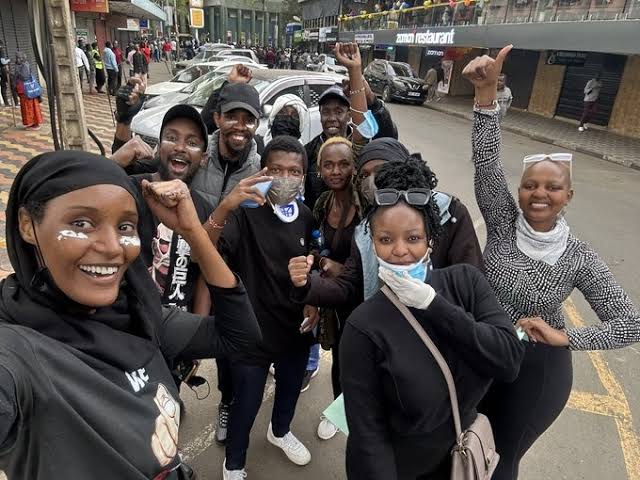By Muthusi Kimanzi
Kenya today strives to solidify her democratic foundations, and to foster prosperity that could eventually lift her citizens to her desired path of destiny. Well, that can only happen if basics such as upholding the rule of law, ensuring the populace of security, delivering crucial services, and creating an environment where the people can thrive are in place.
Yet the foregoing can hardly happen when a certain quarter of our so-called “human rights” sector, whose pronouncements frequently carry the unmistakable echo of a foreign script, is alight. This sad admission begs a critical question; are some of Kenya’s most vocal activists truly independent champions of justice, or are they unwitting (or sometimes, witting) puppets of a West uneasy with successful African examples?
The foregoing inquiry is not born of paranoia. Rather, it derives from an observable pattern. Consider the rhythm. When the Kenyan government takes decisive, lawful action against genuine threats, dismantling criminal networks, confronting violent extremism, or cracking down on the corrosive graft that siphons national wealth, the outcry from specific NGOs and their amplified voices is often swift, disproportionate, and curiously aligned with Western diplomatic narratives. The language employed is frequently lifted wholesale from the lexicon of international human rights bodies funded by Western outfits, largely lacking nuanced understanding of the local context or the complex realities of maintaining order in a developing nation facing multifaceted security challenges.
The lifeblood of many prominent Kenyan NGOs is foreign funding. Grants from Western administrations, North American foundations, and international bodies flow generously, ostensibly to support the “promotion of democracy.” This dependency creates an inherent conflict of interest that begs the question; “can an organisation bite the hand that feeds it, especially when that hand belongs to a donor whose geopolitical interests might not perfectly align with Kenya’s sovereign path to stability and prosperity?
The West, particularly former colonial powers and their modern inheritors, maintains a vested interest in the political and economic contours of Africa. A Kenya that truly succeeds, demonstrating that an African nation can effectively govern itself, secure its borders, root out corruption with its own institutions, and chart an independent economic course, poses an existential challenge to a long-standing narrative. This narrative often portrays Africa as perpetually dependent, chaotic, and utterly hopelessly.
This is not to dismiss the vital and courageous work of Kenya’s genuine human rights defenders. Their work is important to say the least. My critique is reserved for the specific cohort of activists whose showing appears selectively outraged, and suspiciously synchronised with the strategic interests of hogging the eye of foreign powers. These are the actors who readily board flights to Geneva, New York, or European capitals to testify before bodies funded by their donors, while showing little, if any zeal for constructive engagement with domestic accountability mechanisms or finding Kenyan solutions to Kenyan problems.
The tactics employed by our star activists often mirror classic a plot guided by a story set to achieve a certain end. These activists become willing agents in a larger geopolitical game where when African nations rise as a stable, prosperous, and independent actors are instantly targeted for destruction by powers that be.
Kenyans are not as undiscerning as some of us would want to imagine. They see the gap between the activist professing deep concern for their welfare while enjoying lifestyles funded by distant capitals, and the genuine struggles of ordinary citizens. They recognise the difference between holding power accountable and acting as a fifth column for external agendas.
As Kenya strives to do the basics right and emerge as a beacon of self-reliant progress, it must critically examine the strings attached to the activism operating within its borders. True sovereignty demands not only resisting overt political interference but also discerning and rejecting the more insidious influence masquerading as human rights concern.
Kenya’s future is too precious to be left in the hands of those dancing to a foreign tune. While at this point, do keep an eye at who will feature prominently on the intended fracas planned for June 25th and guess who are the bankrolling agents.
Should I say more really?
Muthusi is a Mombasa-based social affairs commentator



